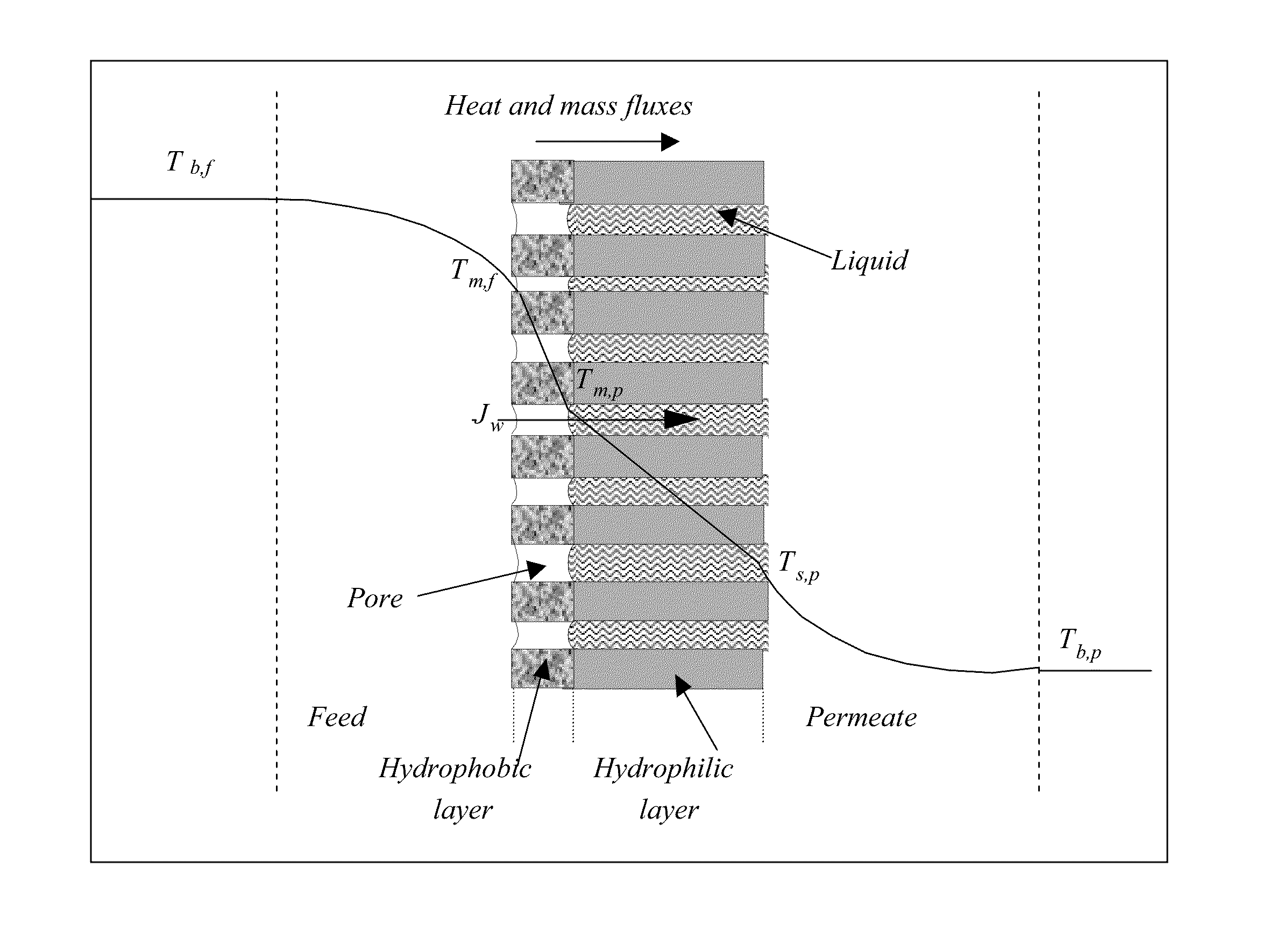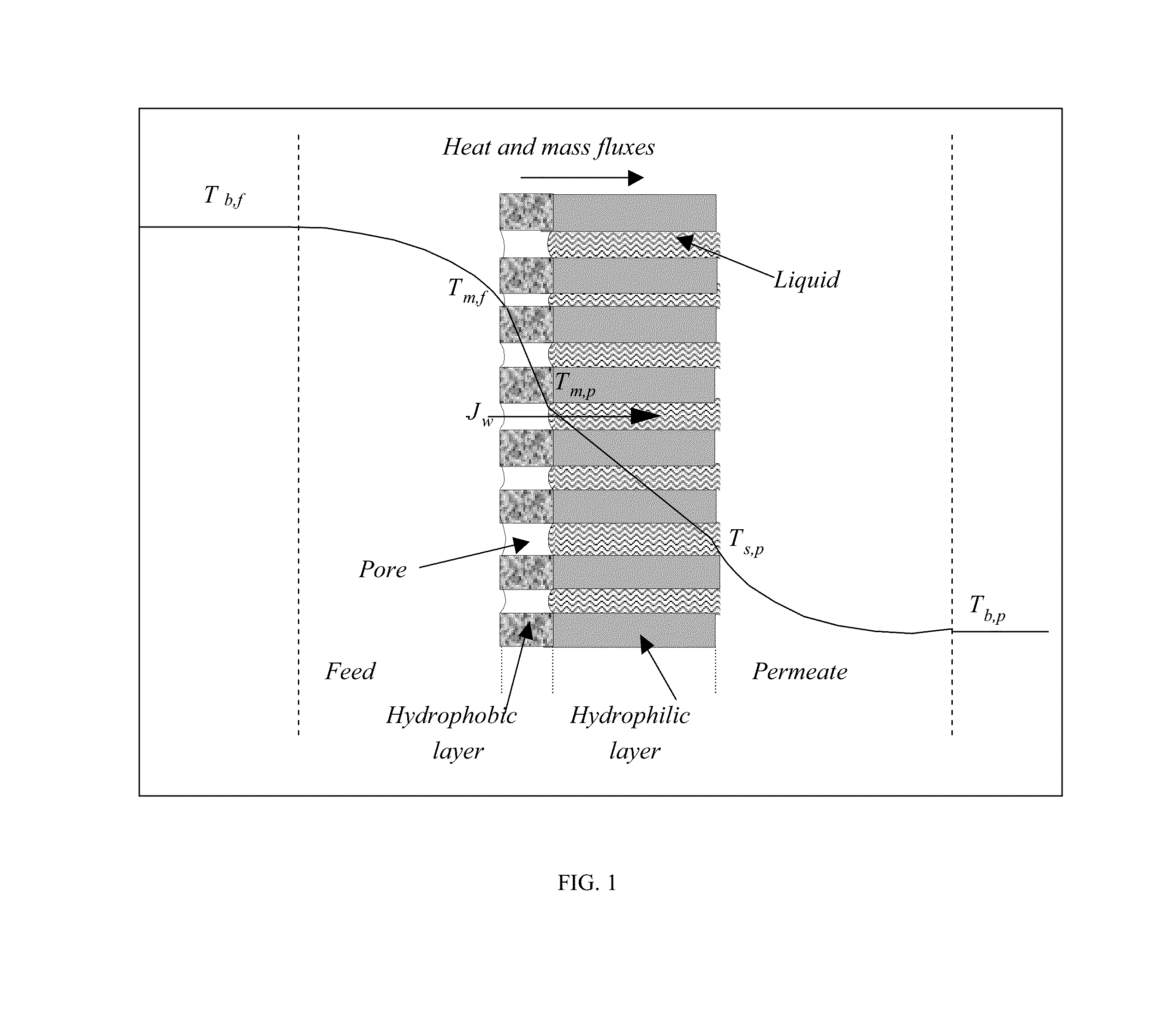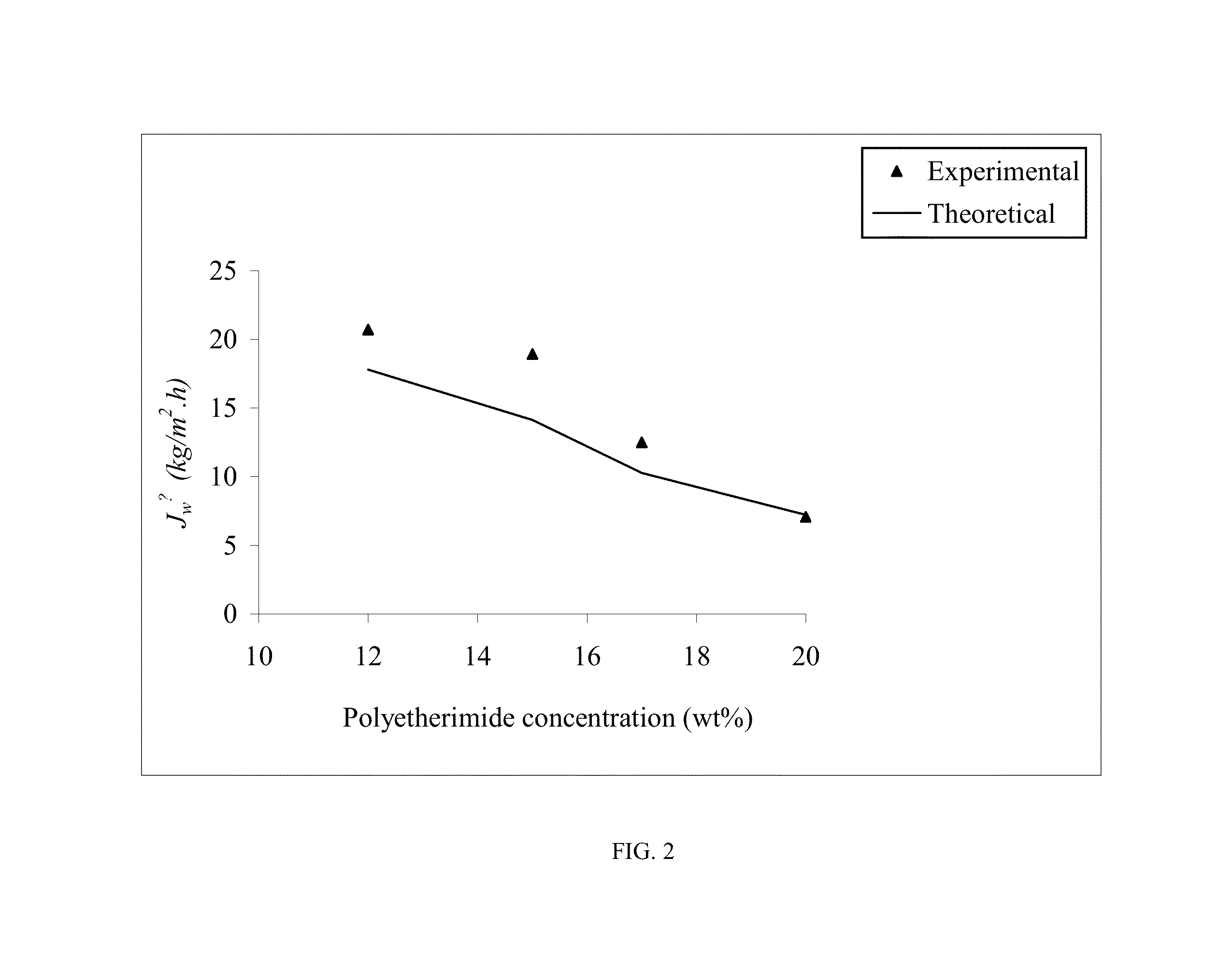Composite membranes for membrane distillation and related methods of manufacture
a composite membrane and membrane technology, applied in distillation, filtration separation, stationary filtering element filters, etc., can solve the problems of lack of adequately designed md membranes and the inability to commercialize md processes for large scale desalination plants, and achieve the effect of maximizing the porosity minimizing the thickness of the top hydrophobic layer, and maximizing the thickness, porosity and thermal conductivity of the bottom hydrophilic layer
- Summary
- Abstract
- Description
- Claims
- Application Information
AI Technical Summary
Benefits of technology
Problems solved by technology
Method used
Image
Examples
example 1
Process for Optimizing Composite Membranes for Membrane Distillation
[0068]It is documented that 61% of MD studies included modeling as the basis for investigating the MD process performance [6]. Most MD publications have focused on modeling the DCMD process since it is the most suitable configuration for desalination, which is the most common application of MD. DCMD modeling can be split into two domains: i) heat and mass transfer analysis of the process and ii) the effect of membrane characteristics. The studies of the first domain focused, mainly, on predicting the permeate flux, heat and mass transfer coefficients, heat and mass resistances and temperature and concentration polarization coefficients [4, 32, 36-40 and 42]. The other studies are related to the second domain and focused on the investigation of the effect of membrane characteristics such as membrane thickness, porosity and pore size distribution on the membrane performance [9, 10, 13-17, 41 and 43-47].
[0069]Commercia...
example 2
Preparation and Characterization of Hydrophobic / Hydrophilic Polyetherimide Composite Membranes for Desalination by Direct Contact Membrane Distillation
[0215]The objective of this Example is to identify and discuss the effects of hydrophobic / hydrophilic membrane preparation conditions on the membrane morphology and desalination DCMD performance of these membranes. The membrane performance was related to the membrane morphology as well as to the membrane preparation factors such as, SMMs type, SMMs concentration, evaporation time and solvent type. Two different types of SMMs were synthesized and characterized. Polyetherimide (PEI) was used as the host hydrophilic polymer. Different membranes were prepared and characterized using the gas permeation test, the measurement of the liquid entry pressure of water (LEPw), the scanning electron microscopy (SEM), the contact angle (CA) and the X-ray photoelectron spectroscopy (XPS) analysis. Finally, all the membranes were tested by DCMD with f...
example 3
Preparation and Characterization of Hydrophobic / Hydrophilic Polysulfone Composite Membranes for Desalination by Direct Contact Membrane Distillation
[0266]The objective of this Example was to introduce polysulfone (PS), which is widely used in preparing reverse osmosis (RO), ultrafiltration (UF) and microfiltration (MF) membranes [21], as a possible membrane material for manufacturing membrane distillation membranes for the first time. To this end; hydrophobic / hydrophilic membranes were prepared by the phase inversion method using PS as the host hydrophilic polymer, whereas the hydrophobic layer was formed via the migration of the hydrophobic SMM toward the air / polymer interface while the SMM blended polysulfone dope was cast into a film. Moreover, this Example identifies and discusses the effects of hydrophobic / hydrophilic membrane preparation conditions on the membrane morphology and desalination DCMD performance of the prepared membranes. The membrane performance was related to th...
PUM
| Property | Measurement | Unit |
|---|---|---|
| permeate temperature | aaaaa | aaaaa |
| permeate temperature | aaaaa | aaaaa |
| permeate temperature | aaaaa | aaaaa |
Abstract
Description
Claims
Application Information
 Login to View More
Login to View More - R&D
- Intellectual Property
- Life Sciences
- Materials
- Tech Scout
- Unparalleled Data Quality
- Higher Quality Content
- 60% Fewer Hallucinations
Browse by: Latest US Patents, China's latest patents, Technical Efficacy Thesaurus, Application Domain, Technology Topic, Popular Technical Reports.
© 2025 PatSnap. All rights reserved.Legal|Privacy policy|Modern Slavery Act Transparency Statement|Sitemap|About US| Contact US: help@patsnap.com



